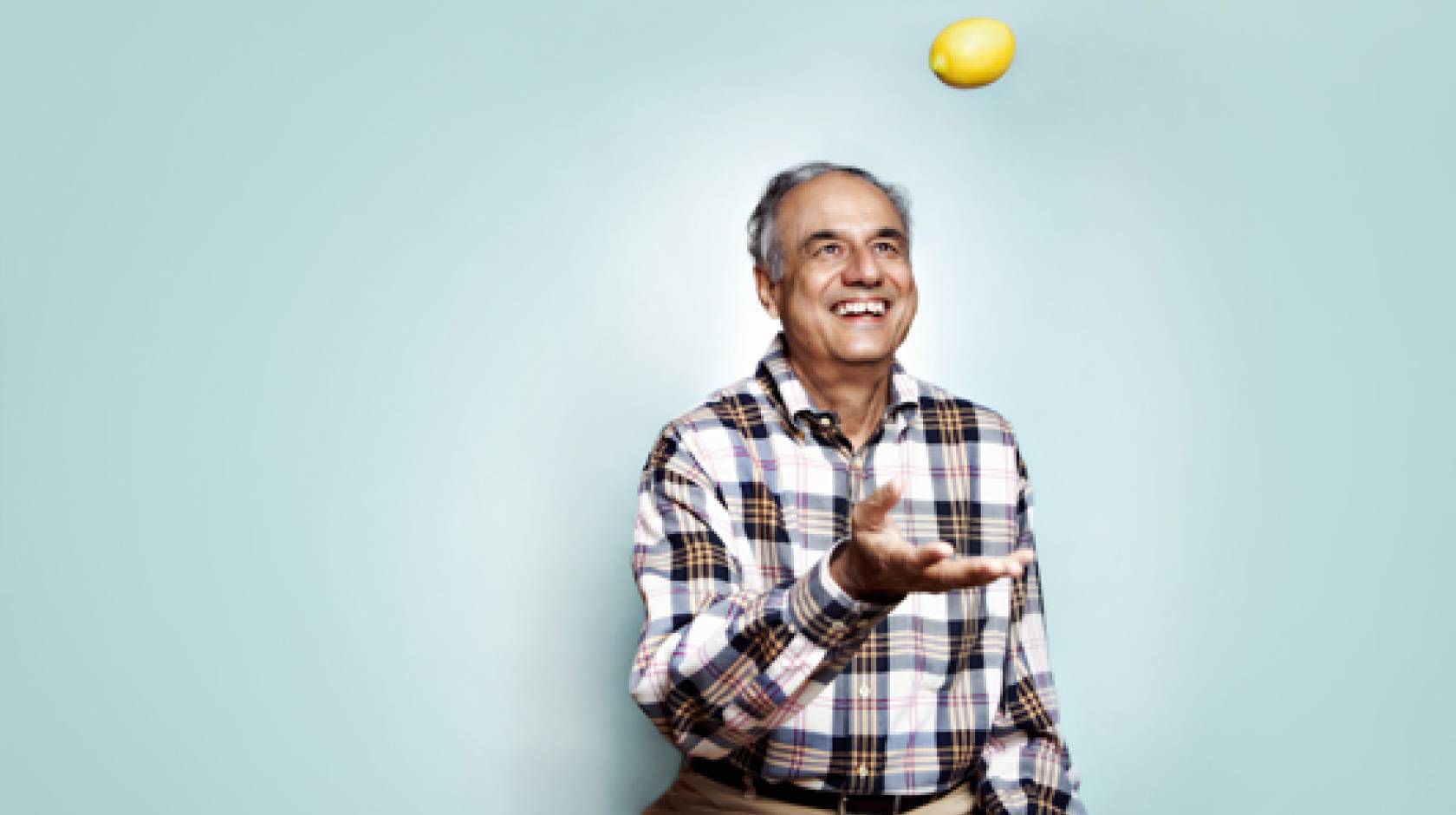Norma Meyer, UCLA

Lotto fanatics, listen up: In terms of happiness, winning a mega-jackpot might not mean jack.
UCLA Professor Rakesh Sarin M.S. '73, Ph.D. '75, who has extensively studied the science of happiness, says socializing with friends, enjoyable meals and a positive outlook may do more for your everlasting bliss.
Sarin, who holds UCLA Anderson's Paine Chair in Management, and his former student Manuel Baucells Ph.D. '99 have co-authored a self-help book, Engineering Happiness: A New Approach for Building a Joyful Life.
Since their backgrounds are in business and mechanical engineering, the tome's preface asks: "What can two pointy-headed math geeks possibly teach me about happiness?" Plenty. "Happiness is a choice," Sarin contends, and describing happiness mathematically helps people understand that concept.
Sarin segued into the field after focusing on why people make certain investment and other decisions (yep, they just want to be happy). After 10 years researching economic, behavioral and other data, he helped craft Six Laws of Happiness that anyone can follow to put more smiles on their face.
For example, Law No. 1 explains that we often compare ourselves to colleagues who have more, which bums us out. Instead, learn to admire others' success and you're likely to feel pretty good.
Now, here's the math part. Sarin devised measuring units—which he calls "happydons"—so individuals can rate their moods on a 24-hour "happiness seismograph" and improve their "sum total" well-being.
"There's a lot of information out there about how to be happy," he explains, "but it's haphazard and disorganized.
That's where engineering comes in—quantifying things, with the goal of setting about how to be happy."
Sarin acknowledges that the method is "not really precise," but it does allow us to quantify how we feel at a particular moment—and the sum total of those moments adds up to happiness, or something less than that.
For example, say you had a headache. You might give it -3 happydons. To counterbalance, try an hour of relaxation for +3 happydons. But back to that "money buys happiness" trope. On the contrary, being flush doesn't guarantee a happy camper. Sarin cites a study showing American millionaires residing in ostentatious mansions are barely happier than African Masai warriors living in huts. And he points to $315-million Powerball winner Jack Whittaker, whose lottery bonanza led to jail, rehab and despair.
"The most surprising finding is that in spite of the amazing progress we have made in the last 50 years, our happiness level has not budged much," Sarin notes. With effort, though, you can be more glad than sad. Sarin provides a basic formula repeated throughout the book: Happiness equals reality minus expectations.
Want to really have happy days? Cultivate new hobbies. Do charity work. Nurture relationships. All have been shown to boost one's happy-ometer. Sarin, for example, says what makes him merry is "the time I spend with family and friends."
He also reveals his happiness seismograph always spikes on Fridays. "That's when I play golf. My happydons are quite high."

